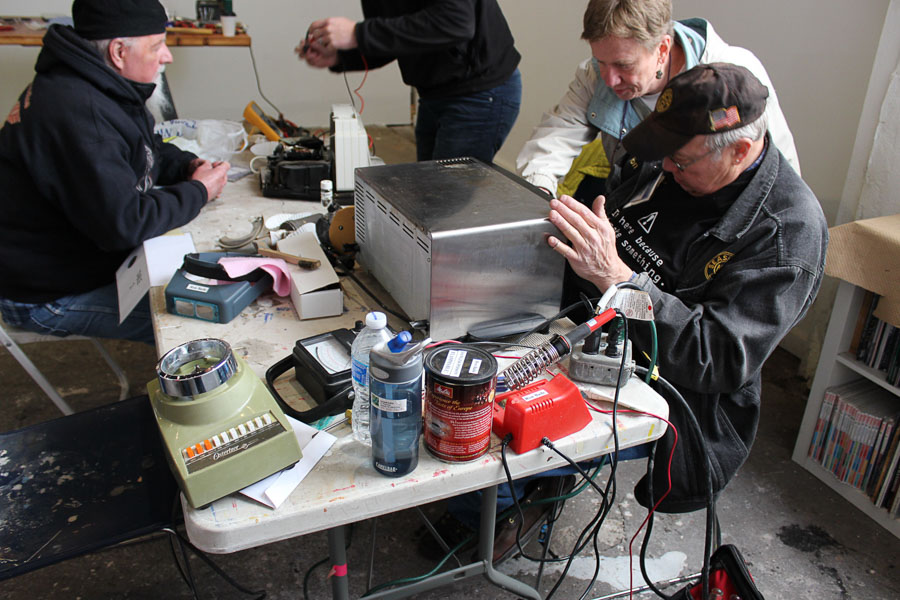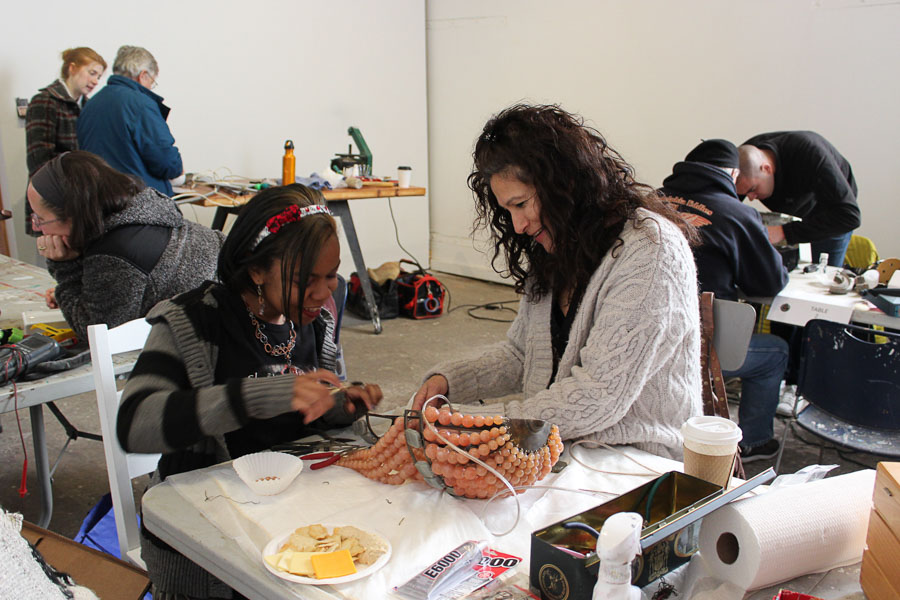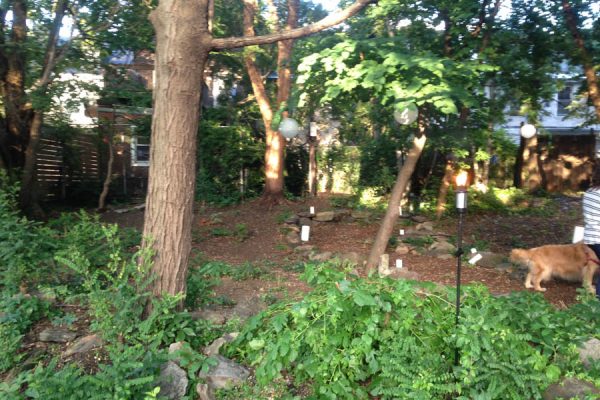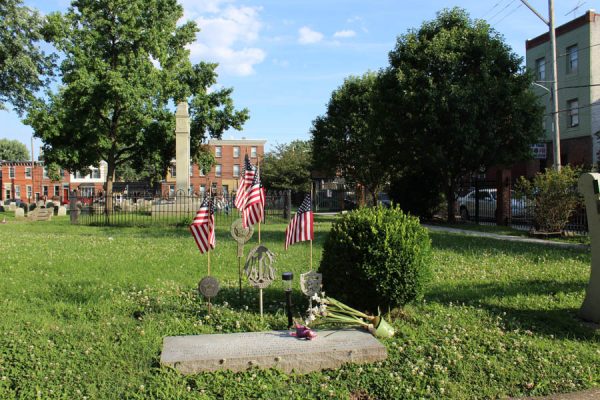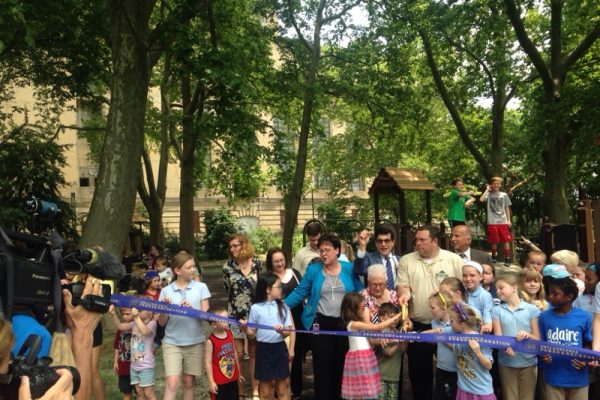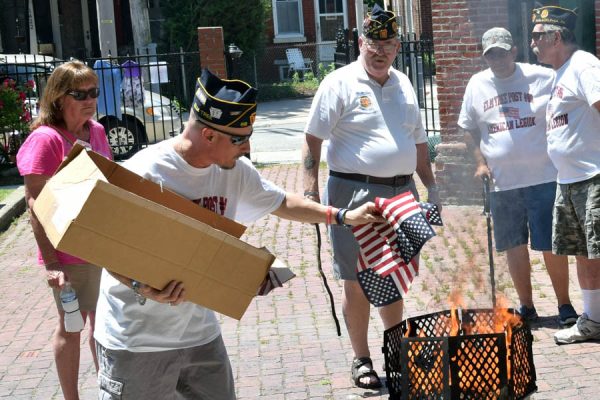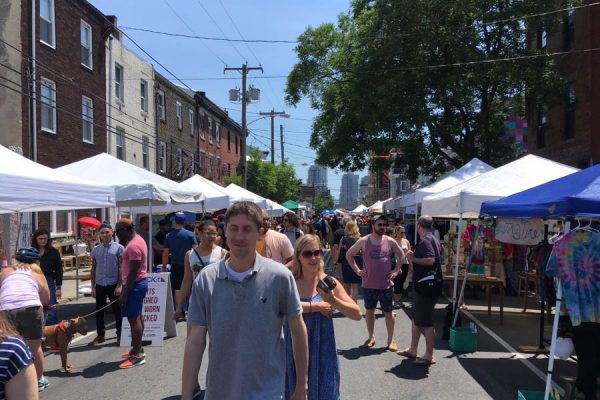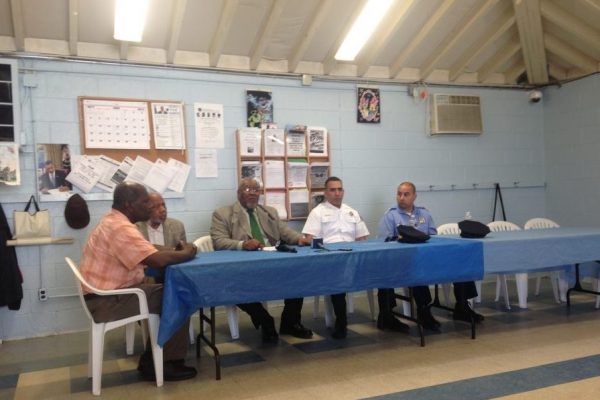Fixer Fair: Philly Fixers Guild Teaches the Neighborhood to Tap Into its Maker Roots
One of the greatest factors of American society is convenience. Unfortunately, our quest for the best deal or the right item at the perfect time has left little room for small business to survive. Neighborhood hardware stores are being replaced with faceless big box stores that have everything you need, but aren’t always there when you just want some friendly advice on that home project you aren’t sure you can handle.
The change in retail is reflective of a shift in the way our material goods are made. Items that were once made out of meta andl expected to last for years are now being made out of plastic, with manufacturers making parts that will break one day. Our culture is based on expendability and because of this, cities like Philadelphia produce tremendous amounts of waste.
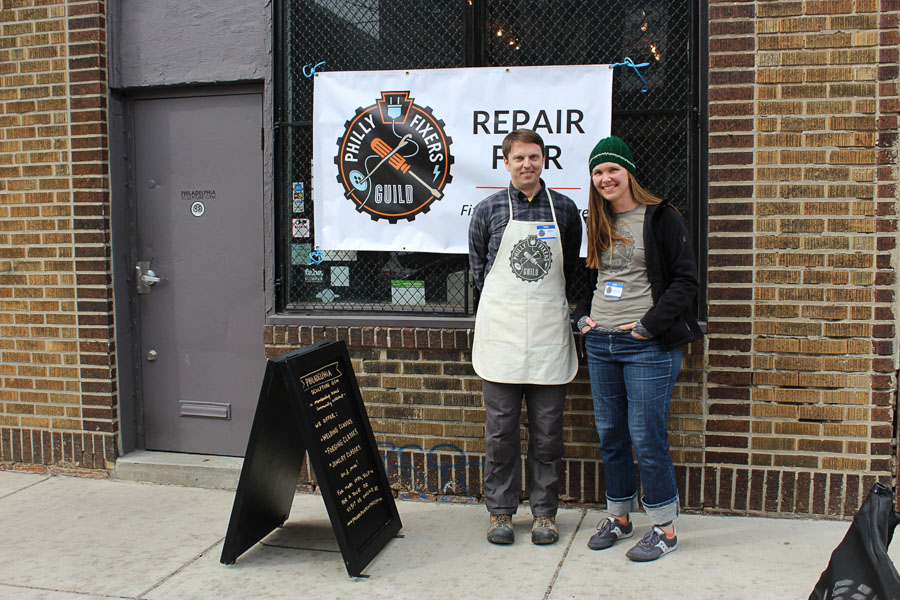
Ben Davis and Holly Logan co-founded the Philly Fixers Guild, and put on four “Repair Fairs’ per year./Ptah Gabrie
According to Phila.gov, Philadelphia collects around 731,000 tons of trash and about 48,000 tons of recycling annually. 291,000 tons are spared from a landfill and used to create energy. The website claims that the city hoped to be diverting up to 70 percent of city trash to energy from waste plants, but it doesn’t say if their goal was met. This still leaves thousands of tons of trash going to landfills. When you think how much garbage cities all across the country create, it’s staggering.
The Philly Fixers Guild (PFG) is combating this trash crisis by holding “Repair Fairs” in the neighborhood so people can learn to fix their busted items rather than toss them in the trash. PFG was formed by Ben Davis and Holly Logan in 2014 as a way to educate the community and work to change the “Planned Obsolescence” of material goods. The PFG is made up of approximately 82 volunteer fixers with about 10-15 of them showing up to the fairs to handle an average of 100 visitors.
“If you can repair things, they don’t get thrown away… less stuff in the landfill,” Davis said. “We want to teach people that they can repair things.” Logan and Davis volunteer for NKCDC and are specifically active in the Sustainable 19125/19134 program. According to them, the program examines ways to improve quality of life through sustainable urban practices.
The “Fixer Fair” or “Repair Cafe” concept is not unique — according to Logan and Davis, there’s at least one other group like them in Philadelphia and many others across the United States. Logan credits the openness of other fixer groups as important to developing the Philly Fixers Guild.
“We really benefited from other entities,” Logan said. “It’s been great comradery and we’re really trying encourage people to start their own.”
Logan pointed out that they aren’t trying to replace the growingly scarce neighborhood hardware and repair shops. “One of the things we are not trying to do is replace repair shops,” Logan said. “We’re really trying to redirect people if someone here can’t help with it.” According to Davis, they have a list of local repair shops that they use as referrals.
According to Davis, approximately 25 percent of the items brought in are unfixable.
“The reality is that a lot of these things cannot be fixed,” Davis said. “When we deal with late model year electronics, they have this planned obsolescence built in… parts that are engineered to have a limited number of duty cycles, and when that little part breaks, there’s no replacement, it’s pretty much shot and you have to buy another one.”
On March 5, the Philly Fixers Guild took over The Sculpture Gym at 1834 Frankford Avenue for their 7th “Repair Fair.” “It’s a great space for us,” Davis said. “It enables us to have all kinds of great work spaces, tables to get repairs done.” The public was invited to bring just about anything that isn’t in working order. According to Logan, PFG has about four events per year and they will be holding one at Greensgrow Farms in October. As you can imagine, an open call like this attracts some interesting items.
We couldn’t resist asking what some of the weirdest things they’ve seen were. Logan recalled a taxidermied cat that had been made to look like a lion.
“The owner brought it in because one of the legs broke off. I don’t think we were ready,” Logan said.
“The same person brought in all her baby teeth that she wanted us to make into jewelry,” Davis said.
Georgette Dubois was at the fair with her avacado green blender that she wasn’t ready to part with.
“When it works, it’s fantastic,” Dubois said. She traveled from Narberth along with her daughter who was getting a sewing machine repaired. Dubois admits she could easily replace the blender, but sentimental value, and a desire not to waste brought her to the fixer fair. “I’m very interested in sustainability,” Dubois said. “I deeply appreciate that there are people willing to share their skills in this way.”
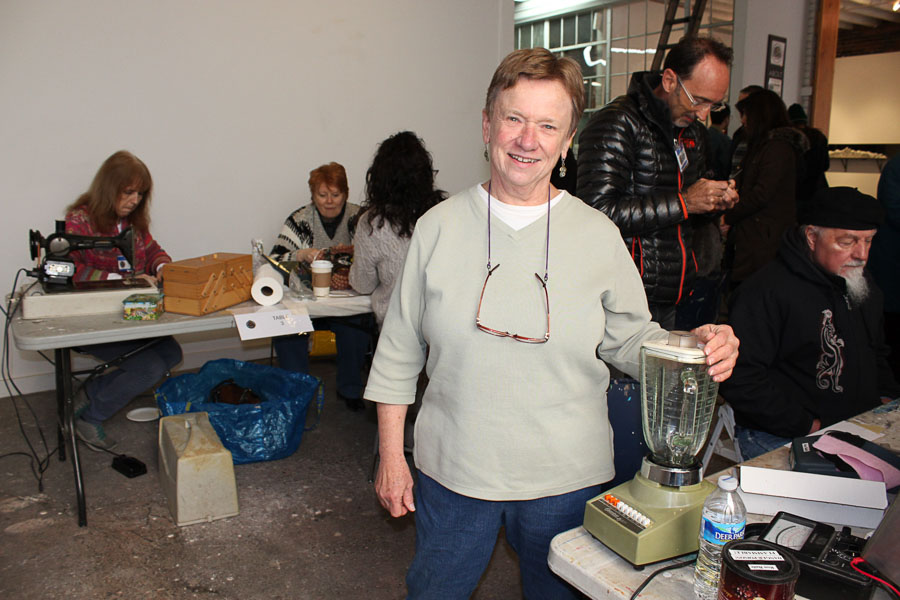
Georgette Dubois, Narberth, Pa, brought her avacado green blender that she’s just not ready to let go of./Ptah Gabrie
Darla Jackson, founder of The Sculpture Gym, enjoys having PFG at her space.
“I like when they’re here because the idea behind the organization is great, but then the tools we have are very useful,” Jackson said. According to Jackson, the best part of the fixer fair for her is seeing people learn how to fix their item if it breaks again in the future. “I love seeing people come in with something they were ready to throw out, and not only have it fixed, but also learn how to do it… Next time they can fix it.
